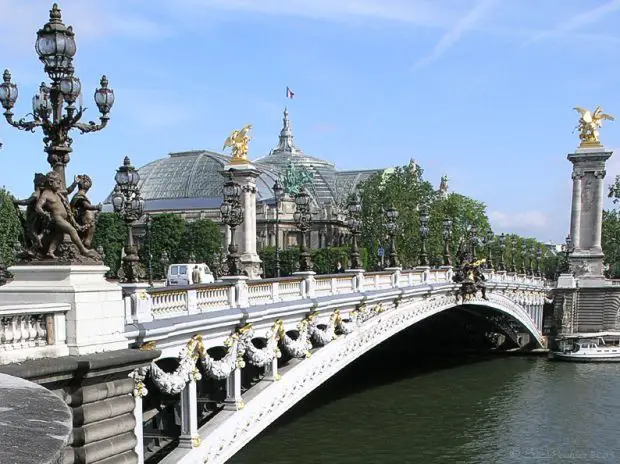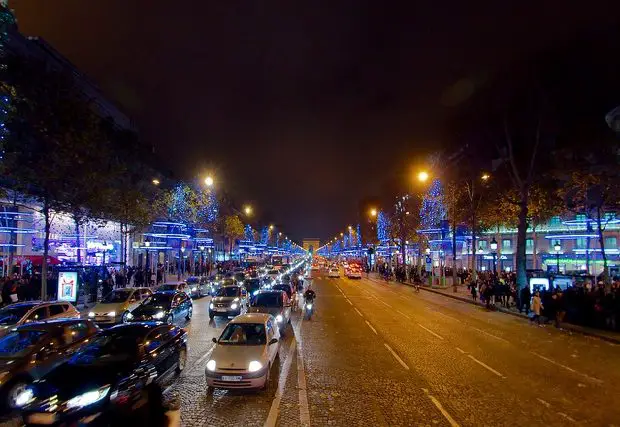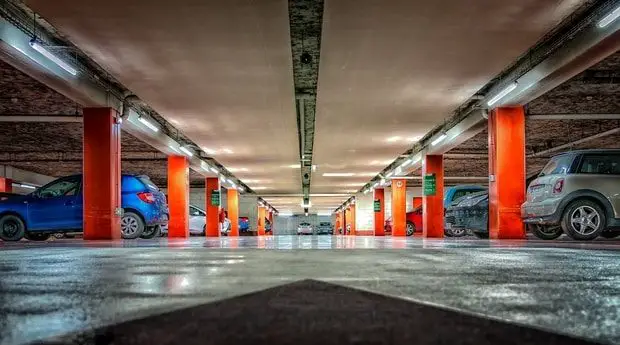Withdraw money, exchange currency pay by card or in cash ? Having so many ways to pay that doesn’t really make it easier for tourists in foreign lands. But thanks to this little guide, you’ll be able to find your way a little better around those many means of payment, and find the one that is the most suitable for your trip in France.

1) Currency exchange : at home, or locally ?
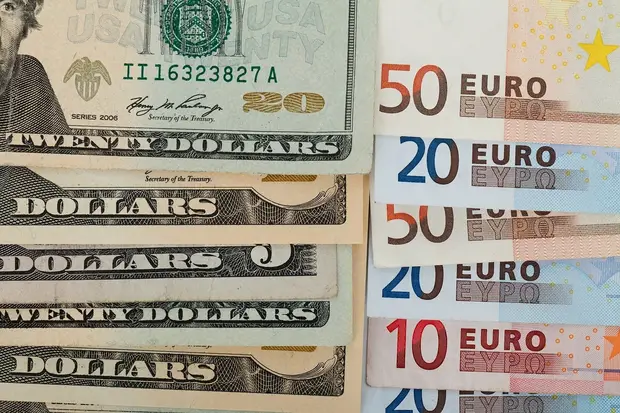
As a rule, exchanging money before leaving your home country costs less than doing it locally -because of exchange rates.
However, withdrawing euros directly in France, depending on the withdrawal rate of your bank, can be even more attractive. However you have to keep in mind that you can still face some costs for each withdrawal you make. Also keep in mind that the airport’s currency exchange offices have really high exchange rates. Therefore, prefer withdrawal or currency exchange but in the city’s currency exchange offices.
As well, you should know your currency’s exchange rates. You are never safe from a fraudulent office, in France as well as in your own country, that will not give you back as much as they should.
On another note, landing in France with a lot of cash in your pockets is not the smartest thing either. You could lose it or get it robbed : not that thieving is a very common thing, but just like in any of the world’s big cities, touristic places are full of pickpockets, eagerly waiting for any inattentive mistake. The metro, which is usually busy, is one of their favorite playgrounds. One good strategy is to withdraw money once you’re on the spot -at your arrival gate/station for instance as there are plenty of ATMs in airports or train stations.
2) Cards
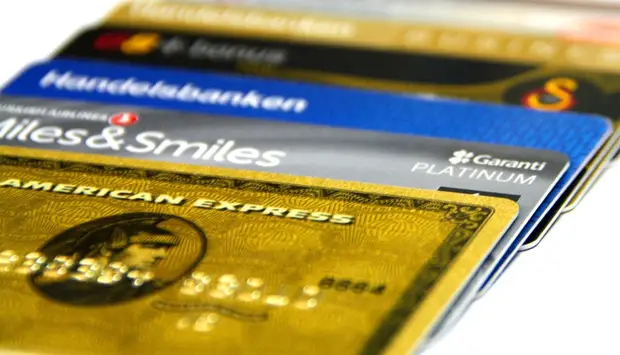
Practical, easy to use and less stressful than having cash in one’s pocket, card payment is accepted -almost- everywhere nowadays. It is quite exceptional to find any type of business that doesn’t accept them in France. Restaurants and tourist places always take card payments. There are probably only small, local marketplaces and very, very few -exceptional- other businesses that won’t accept them.
Beware of bars and cafés that, even if they accept card payment, might impose a minimum amount for it’s use (up to 15 euros). It might sound rude to those who are not used to it, but it is because the business has to pay a certain amount to banks on payments made by card.
Moreover, keep in mind that if you belong to a foreign bank, a commission -of perhaps a couple percent percent- could be deducted on any payments. Ask your bank about it.
Good to know :
While common cards such as Visa or MasterCard are accepted everywhere, AMEX and Unionpay ones are usually accepted in major hotel, travel and restaurant chains, but it is not always the case, and even less so in smaller restaurants and especially in stores -and it gets progressively less common as you leave big cities and tourist places.
As for JCB and Diners Club cards, it is less common to find establishment that accept them since they can only be accepted by businesses that belong to banks that have a partnership with the issuers of those cards. And even if it is the case, they have to ask their banks and it will be only under certain conditions.
Thus, more and more, it’s only luxury brands (whether it’s stores, restaurants or hotels) that accept them more and more. It is becoming more common. However, you most certainly won’t find any takers in an H&M or LUSH and especially outside the big tourist areas.
Therefore, favor more traditional cards, or cash, so as not to encounter any unpleasant surprises.
Differentiate :
Debit Cards : To use for general expenses, such as restaurants, transport, going out and cash withdrawals. This type of card will systematically ask your bank’s approval -so that you do not exceed your overdraft limit- and withdraws the amount of money you use/withdraw directly from your account. It is also usable in more places than the credit card.
Credit Cards : A back-up, in case you have reached the amount you are allowed by your bank to use per week with your debit card. It is also useful to use to pay for bigger expenses. Be careful though, not to exceed the amount you are allowed to use or you’ll have a bad surprise when you get home. Because, as the payment is postponed, the interests charged could be high. Do not forget that you are technically borrowing this money!
Note that some hotels and rental agencies still ask for a credit card instead of a debit card as they have to have a way to charge you if you ever damage what you rented (e.g. car, apartments, boat, room).
3) Cash
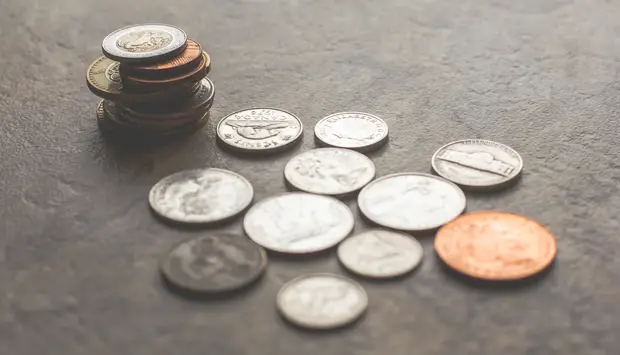
Imagine walking along the Seine and wanting your portrait done by a street artist, or wanting to tip your waiter. Or even give in to a crêpe, waffle or ice cream while wandering the streets or beach. For all those situations, and also to avoid extra card fees for your really small expenses, it is always a good idea to have a little bit of cash on hand
How :
Larger denomination banknotes (100, 200, 500 euros) are not usually accepted in smaller businesses, restaurants, cafés, bars, etc. You may have more chances of them being accepted if they almost cover the amount you have to pay, but business owners are usually unwilling to take them for they fear that they might be counterfeit bills, or because they don’t have enough change to afford accepting them. You will likely face many rejections.
Note that luxury stores and restaurants usually accept them, as they are used to tourists.
Therefore, unless you plan on doing some serious shopping, take one of those zeros out, and prefer smaller denominations (10, 20, 50 euros)!
How much ?
We would advise against withdrawing a high amount of money. If you plan on doing some shopping in luxury boutiques, for instance, we would advise you pay directly by card as it can and does happen that tourists end up bereft after being robbed, without even noticing, in tourist places. The exterior of the Boulevard Haussmann in Paris is unfortunately quite famous for that.
For a typical day out in Paris as a tourist, we advise you to have enough cash for : eating, buying some souvenir, taking a drink and visiting some places. All in all €100 per person should be enough.
Be careful not to end up stuck in a difficult situation because you had reached the limited amount of money you can withdraw per week, and thus, ending up having your card denied at the hotel or at the ATM.
If this ever was to happen, contact your bank and ask your adviser to raise this limit for a little while. You don’t want to end up in any of those situations where you can’t pay for anything anymore! While you’re at it, inform them of your trip. Some banks can offer you a deal where you pay a little extra before your trip and don’t have to pay any extra, when paying/withdrawing money, while you’re abroad.
Furthermore, if you’re far from home, your bank might see all those purchases from another country as a fraud attempt or hacking and block your accounts. They would probably try to call you first, but in the event of your phone SIM card not working, you should warn them first.
That would save you the embarrassment of not being able to pay for your meal at Hippopotamus…
Where ?
Nothing’s easier than finding an ATM in town. In fact, in big cities such as Paris, Nantes, Lyon,.. they are everywhere. And even if they are not as abundant when you approach the suburbs and smaller towns, you won’t have to look for one for very long. Just reach the town’s closest train station, mall or center and you can be sure there will be one. France’s most famous banks are Crédit Mutuel, Crédit Lyonnais, Banque Populaire, Crédit Agricole, La Banque Postale, Caisse d’Epargne, Société Générale, BNP Paribas and CIC.
When withdrawing money, depending on the bank you belong to, a commission will be deducted. Usually, there’s a set amount and then an added percentage on the amount withdrawn or paid.
As a rule, French banks won’t make you pay extra when you withdraw money and belong to a foreign bank. But it is not always the case for your own bank.
-For instance, Alliant Credit Union takes 1% on the amount you pay or withdraw.
-Bank Of America takes 3% when paying and $5 + 3% of the amount when you withdraw.
-TD Bank won’t take anything when you pay but will still take $3 for each withdrawal.
So, it is better not withdraw €10each time, and especially ask for your bank’s price list! Always read the little terms and conditions at the bottom of the contracts! That being said, there are still some banks that won’t make you pay extra when paying or withdrawing while in another country :
-Capital One 360, for instance. Though, if the bank you withdraw money from makes you pay extra, Capital One won’t reimburse you.
-Charles Schwab Bank oofers free, unlimited withdrawals and free payments in foreign countries, and will even reimburse you the potential fees foreign banks could impose on you.
-Discover Ban, as well as the other banks above, won’t make you pay additional fees. But, because there’s always a “but”,the number of transactions you can do will be limited.
-As for Varo, they won’t charge you extra for payments/withdrawals, and they are exclusively a Mobile Bank. Which leads us to our next subject!
For more info on bank prices regarding payments/withdrawals when abroad : click here.
4) Mobile/Phone Payment
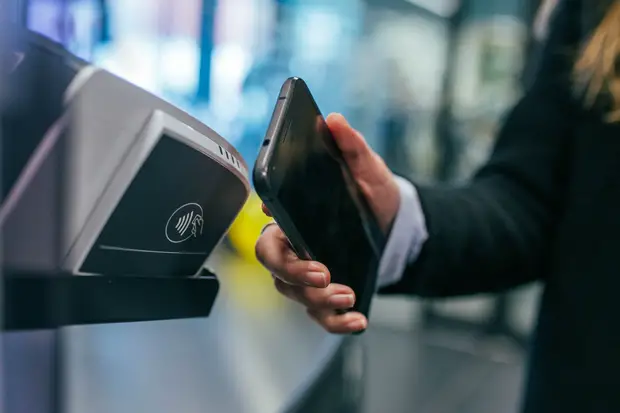
With the possibility to pay up to 300 euros, there’s no need to walk around with cash. Accepted everywhere were contactless payments are as well, M-Payments are often available. It is practical, it is easy, it is fast -but it is not always the simplest.
Therefore, it should not be your only means of payment. Think about the eventuality of capricious technology that won’t work as planned, or of a dead battery, or even losing or forgetting your phone.
Apart from that, there could also be additional fees for M-payments abroad whether from your bank or phone/internet provider. It is, once again, important to know all the terms and conditions of both. The best solution, without having to spend days reading every obscure page of your contracts that are written in an equally obscure vernacular, is to contact them both and ask them directly if there are any additional fees you should worry about. Alongside, some brands don’t accept M-payments and that is because of various technical reasons depending on which app you’re using (Paylib, Apple Pay, Boon, and many more…).
Finally, if you are not used to using that type of payment, keep in mind that your phone has to be equipped with the NFC technology and that your bank absolutely has to be offering this means of payment.
5) Travelers Checks
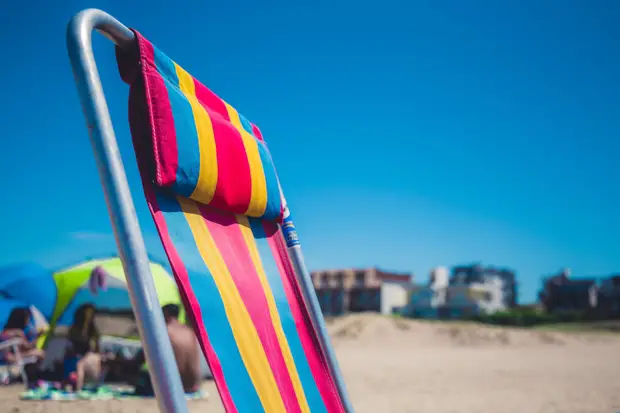
Traveler’s checks are a very safe way to pay for your expenses during your vacations, because they fully replace cash and because, even if lost or stolen, no one can use them as they require the owner’s signature to be used. However, they have still been losing popularity in recent years. In fact, even French traveler’s checks are only accepted by tourism services (e.g. hotels, amusement parks, catering, museums, etc.) and only by those they have a partnership with.
Therefore, you can expect even more restrictions for foreign traveler’s checks. Actually, they are almost always denied. Regardless of where you will try to use them (hotels, banks, tourist places, etc..).
Thus, we would advise against choosing this means of payment, especially AMEX’s traveler’s checks. Numerous travelers have found themselves disconcerted after no banks would agree to exchange them for cash and when they couldn’t use them anywhere to pay.
Moreover, the few AMEX centers that were still open in France’s big cities have been progressively closing over the past 10 years.
Finally, if you ever get the chance to find a bank willing to cash them; a little reminder that you’ll have to pay charges both when buying them and using them, which makes them rather onerous and impractical in the end.
6) What about checks ?
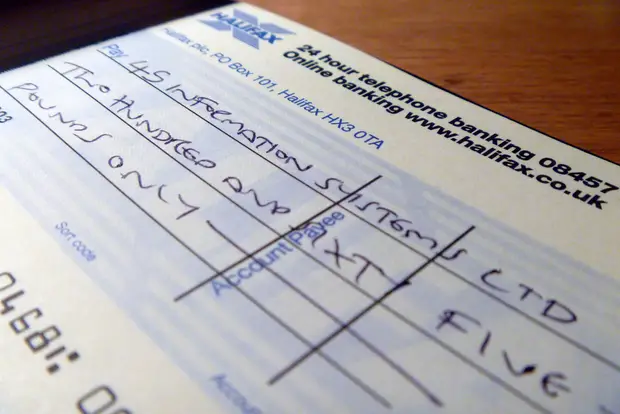
Ban them ! Few businesses accept checks. It is a seemingly safe and simple solution, but it isn’t for business owners, which is why they are prompt to refuse them (and foreign checks even more). Thus, we advise you not to count on them and choose other means of payment.
7) What’s the safest means of payment ?

If having an significant amount of cash on you involves some risks, it is not peculiar to this means of payment. But, there are also risks while withdrawing money, just like in any other country/city.
However, even if there’s no such thing as zero risk, there’s no reason to be paranoid about it. It is not any more dangerous to withdraw money than to walk around with a lot of cash or your debit/Credit card with you.
Just like anywhere else, stay alert and cautious, and stay away from unsavory neighborhoods. Favor ATMs that are often used and in frequented streets. Make sure there are no insistent looks or suspicious individuals around. Even better : withdraw money inside banks. Some of them offer a free-access vestibule, which are more reassuring than outside ATMs.
Our advice : as a precaution, plan on having a second card (debit or credit) just in case yours will not work, or if you lose it or if you reach the limited amount you are allowed to use per week. As a last resort, keep some cash from your own currency. You could change it in the event of an emergency.
To conclude :
Do not be afraid to have cash in your pockets. However, aim for reasonable amounts and in small denominations. Maybe put the money in different pockets for more safety.
If you choose to pay by card, it will be possible in most cases except for American Express, Unionpay, Diners Club, JCB and Maestro cards which will still get denied quite often. Thus, choose more usual ones such as Visa or MasterCard. Besides, ATMs are available almost everywhere, but beware of the additional fees that they could create .
If you choose to change currency, then do it in the city/town’s currency exchange offices, more than in the airport or train station. They are cheaper. Know your currency’s rate of exchange as well. The best approach is to change your currency before leaving your country -but that means having a lot of cash on you.
Checks and travelers checks are to be avoided as they are refused way too often.
Finally, if you are afraid of theft risks, remember that every means of payment has its pros and cons. Look after your belongings, but especially : re-lax, everything is going to be OK!
I aim to share my tips and recommendations for the beautiful country of France. My goal is to help you plan your next adventure, whether it’s a weekend getaway or a once-in-a-lifetime trip. From finding the best hotels and restaurants, to discovering unique activities and sights, I’ve got you covered!

